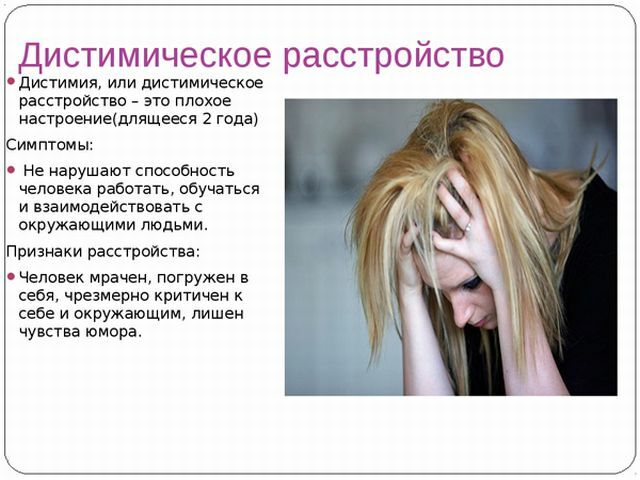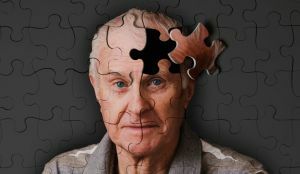 Anxiety is a genetically inherent feature of a person: new activity, changes in personal life, changes in work, in the family, etc., should cause slight alarm.
Anxiety is a genetically inherent feature of a person: new activity, changes in personal life, changes in work, in the family, etc., should cause slight alarm.
The expression "not afraid only of a fool", in our time has lost its relevance, because many panic alarms appear from scratch, then a man just winds himself up, and far-fetched fears increase as a snowball.
With the accelerating pace of life, a constant sense of anxiety, anxiety and the inability to relax have become habitual states.
Neurosis, according to classical Russian taxonomy, is part of anxiety disorders, this is a person's condition, which is caused by prolonged depression, hard-lived stress, constant anxiety and against this background there are vegetative disorders in the human body.
Contents
- Everything is normal, I'm just worried and a little afraid
- Anxious neurosis - the first steps to madness
- GTR - the fear of everything, always and everywhere
- And then there's the depressive. ..
- The causes of the emergence of anxiety states
- The complex of manifestations
- Need help: diagnostics
- How to overcome fears, anxiety and anxiety
- Sessions of psychotherapy
- Medications for fear and anxiety - double-edged sword
- Emergency situation - what to do?
- Do not exacerbate
It's okay, I'm just worried and a bit afraid
One of the previous stages of the appearance of a neurosis can be the unreasonable occurrence of anxiety and anxiety. Feeling of anxiety is a tendency to experience a situation, constant anxiety.
Depending on the nature of the person, his temperament and sensitivity to stressful situations, this condition can manifest itself in different ways. But it is important to note that unreasonable fears, anxiety and anxiety, like the pre-stage neurosis, are most often manifested in tandem with stress, depression.
Anxiety, as a natural sense of the situation, is not in hyper form, useful to a person. In most cases, this condition helps to adapt to new circumstances. A person, feeling anxiety and worrying about the outcome of a given situation, is prepared as much as possible, will find the most suitable ways of solving and will solve problems. 
But, as soon as this form becomes permanent, chronic, problems begin in a person's life. Everyday existence turns into hard labor, because everything, even trifles, frightens.
In the future this leads to neurosis, and sometimes to phobia, generalized anxiety disorder( GAD) develops.
There is no clear boundary between the transition from one state to another, it is impossible to foresee when and how anxiety and a sense of fear will turn into neurosis, and that in turn will turn into an anxious disorder.
But there are certain symptoms of anxiety that manifest constantly without any significant reasons:
- sweating;
- hot flashes, chills, trembling in the body, tremor in certain parts of the body, numbness, strong muscle tone;
- chest pain, burning in the stomach( abdominal distress);
- syncope, dizziness, fears( death, madness, murder, loss of control);
- irritability, the person is constantly "on the platoon", nervousness;
- sleep disturbance;
- any joke can cause fright or aggressiveness.
Anxious neurosis - the first steps to madness
Anxious neurosis in different people can manifest itself in different ways, but there are basic symptoms, the peculiarities of this state:
- aggression, loss of strength, complete despair, anxiety, even with a minor stressful situation;
- sensitivity, irritability, excessive vulnerability and tearfulness;
- fixation on some one unpleasant situation;

- fatigue, poor performance, decreased attention and memory;
- sleep disorders: shallow, lightness in the body and in the head is not present after awakening, even the slightest overexcitement deprives sleep, and in the morning hours, on the contrary, there is increased drowsiness;
- vegetative disorders: sweating, pressure jumps( mostly to a decrease), disruption of the gastrointestinal tract, heart palpitations;
- people during the neurosis negatively, sometimes even aggressively react to changes in the environment: a drop in temperature or a sharp rise, bright light, loud sounds, etc.
But it must be noted that neurosis can manifest itself both clearly in humans and secretly. It is not uncommon for a trauma or a situation that precedes a neurotic failure to occur a long time ago, and the very fact of the appearance of an anxiety disorder has just been formed. The nature of the disease itself and its shape depends on the surrounding factors and the person's personality.
GTR is the fear of everything, always and everywhere.
The notion of generalized anxiety disorder( GAD) is singled out, it is one of the forms of anxiety disorders, with one caveat - the duration of this kind of disorder is measured by years, and concerns absolutely all spheres of human life.
It can be concluded that just such a monotonous state of "I'm afraid of everything, I'm afraid always and constantly" leads to a complex, painful life.
Even the usual cleaning in the house, made out of schedule, upsets the person, going to the store for the necessary thing that there was not, a call to a child who did not respond on time, and in the thoughts "stole, killed", and many more reasons forwhich should not be alarmed, but there is an alarm.
And all this is a generalized anxiety disorder( also sometimes called anxiety phobic disorder).
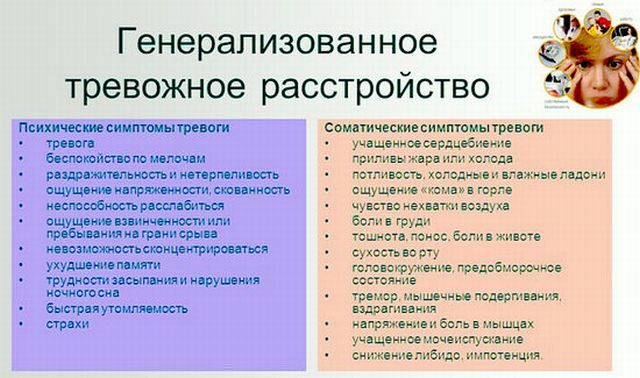
And then there is a depressive. ..
An anxious depressive disorder, as one of the forms of neurosis, according to experts, by 2020 will take second place after coronary heart disease, among the disorders that lead to disability.
The state of chronic anxiety and depression is similar, which is why the concept of TDR appeared, as a kind of transitional form. The symptomatology of the disorder is as follows:
- mood swings;
- sleep disturbances for a long period;
- anxiety, fears for themselves and loved ones;
- apathy, insomnia;
- low performance, reduced attention and memory, the inability to absorb new material.
There are also vegetative changes: increased heart rate, increased sweating, hot flashes or, conversely, chills, pain in the solar plexus, abnormalities of the digestive tract( abdominal pain, constipation, diarrhea), muscle pains and more.
An anxiously depressive syndrome is characterized by the presence of several of the symptoms listed above for several months.
Causes of the emergence of anxiety conditions
 The causes of the emergence of anxiety disorders can not be identified in one clearly formulated group, because every person reacts to this or that circumstance in life in different ways.
The causes of the emergence of anxiety disorders can not be identified in one clearly formulated group, because every person reacts to this or that circumstance in life in different ways.
For example, some currency or ruble depreciation may not excite a person during this period of life, but problems in school or college with peers, colleagues or relatives can lead to neurosis, depression and stress.
Specialists identify some of the causes and factors that can cause anxiety disorder:
- unsuccessful family, depression and stress, suffered as a child;
- a troubled family life or the inability to arrange it in time;
- predisposition;
- female sex - unfortunately, many representatives of the beautiful sex are already by nature predisposed too "to take everything to heart";
- also specialists have revealed some dependence on the constitutional composition of the human body: full people are less predisposed to the appearance of neuroses and other psychic abnormalities;
- posing wrong goals in life, or rather overstating them - already an initial failure leads to unnecessary feelings, and the accelerating pace of modern life only pours oil on fire.
What do all these factors combine? Importance, significance of the psycho-traumatic factor in your life. And as a consequence - there is a sense of anxiety and fear, which from a normal natural form can grow into hypertrophied, causeless.
But it must be said that all the similar factors only predispose, and the rest of the winding takes place in the person's thoughts.
Complex manifestations of
Symptoms of anxiety disorders are divided into two groups: 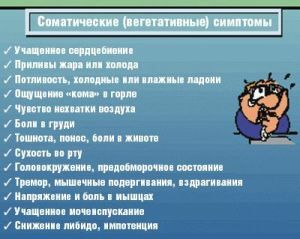
- Somatic symptoms .Characterized by pain, deterioration of health: headaches, sleep disturbance, darkening in the eyes, the appearance of sweating, frequent and painful urination. It can be said that changes a person feels changes on the physical level, and this further exacerbates the anxiety state.
- Mental symptoms : emotional stress, the inability of a person to relax, fixation on the situation, constant scrolling, forgetfulness, the inability to concentrate on something, the inability to remember new information, irritability and aggression.
The transition of all the above symptoms into a chronic form leads to such unpleasant consequences as neurosis, chronic depression and stress. To live in a gray, terrible world where there is no joy, no laughter, no creativity, no love, no sex, no friendship, no delicious dinner or breakfast. .. all these are consequences of untreated mental disorders.
Need help: diagnosis
The diagnosis should be made only by an expert. Symptomatic shows that all anxiety states are intertwined, there are no clear objective indicators that can separate, clearly and accurately, one form of anxiety disorder from another.
Diagnosis by a specialist is carried out with the help of color technique and conversation. A simple conversation, a leisurely dialogue, which is a "secret" poll, will help to reveal the true state of the human psyche. The stage of treatment comes only after the correct diagnosis is made.
Are there suspicions about the formation of anxiety disorders? You need to contact your district doctor. This is the first stage.
Then, based on all the symptoms, the therapist will tell you whether you need to go to a therapist or not.
All interventions should be performed only according to the degree and severity of the disorder. It is important to note that the treatment is built only individually. There are methods, general recommendations, but the effectiveness of treatment is determined only by the correct approach to each patient separately.
How to overcome fears, anxiety and anxiety
To get rid of fear, anxiety and feelings of anxiety, there are two main approaches to date.
Sessions of psychotherapy
Sessions of psychotherapy, an alternative name for CBT( cognitive-behavioral therapy).During such therapy, the causes of the emergence of mental vegetative and somatic disorders are identified.
 Another important goal is to call for the correct removal of stress, to learn to relax. During the sessions, a person can change his stereotypes of thinking, during a calm conversation in a comfortable setting, the patient does not fear anything, which is why he completely reveals himself: calmness, conversation, which helps to understand the origins of his behavior, to realize them, to accept them.
Another important goal is to call for the correct removal of stress, to learn to relax. During the sessions, a person can change his stereotypes of thinking, during a calm conversation in a comfortable setting, the patient does not fear anything, which is why he completely reveals himself: calmness, conversation, which helps to understand the origins of his behavior, to realize them, to accept them.
Next, a person learns how to deal with anxiety and stress, get rid of unreasonable panic, learns to live. The psychotherapist helps the patient to accept himself, to understand that everything is in order with him and his environment, that he has nothing to fear.
It is important to note that CPT is conducted on an individual basis, as well as in groups. It depends on the degree of the disorder, as well as on the patient's willingness to be treated in one way or another.
It is important that a person must consciously come to a psychotherapist, he must understand at least that it is necessary. Force him into the office, and longer also force to talk - such methods will not only not give the desired result, but will also aggravate the situation.
In a duet with sessions of psychotherapy, a massage session and other physiotherapy procedures can be conducted.
Medications for fear and anxiety - a double-edged sword
Sometimes the use of drugs is practiced, such as antidepressants, sedatives, beta blockers. But it is important to understand, drugs will not cure anxiety disorders, they also will not become a panacea for getting rid of mental disorders. 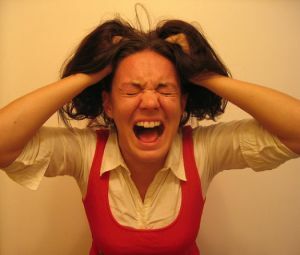
The purpose of the drug method is completely different, the drugs help to keep themselves under control, they help to transfer the entire gravity of the situation more easily.
And they are appointed not in 100% of cases, the therapist looks at the course of the disorder, the degree and severity, and already determines whether there is a need for such medications or not.
In advanced cases, prescribe strong and quick-acting medications to get the soonest effect to relieve an attack of anxiety.
The combination of the two methods gives results much faster. It is important to take into account that people should not remain alone: the family, its native people can provide irreplaceable support and thereby, push to recovery.
How to cope with anxiety and anxiety - video tips:
Emergency situation - what to do?
In an emergency, a panic attack and anxiety is removed medically, and also only by a specialist, if it is not available at the time of the peak of the attack, it is important to first call for medical help, and then by all means try not to worsen the situation.
But this does not mean that you have to run and shout "help, help".No! All kind of need to show calm, if there is a possibility that a person can cause injury, leave immediately.
If not, try to talk in a calm voice, support the person with phrases: "I believe in you. WE together, we will cope. "Avoid the phrases "I also feel it," anxiety and panic are individual feelings, all people feel them differently.
Do not exacerbate
Most often, if a person has applied at an early stage of the development of the disorder, doctors recommend after a cupping situation a few simple preventive measures:
- Healthy lifestyle .
- Get enough sleep, the right quality sleep - a pledge of peace, a pledge in general for the health of the whole body.
- Correctly to eat .A variety, quality, beautiful( and this is also important) food can raise your spirits. Who will refuse freshly baked aromatic hot apple pie with a small ball of vanilla ice cream. Already from these words on the soul of
 it becomes warm, what to say about the very meal.
it becomes warm, what to say about the very meal. - Find a hobby of , a lesson to your liking, maybe change your job. It is a kind of relaxation, relaxation.
- Learn to relax and fight the stress of , and for this purpose, with the help of a therapist or independently learn the ways of relaxation: breathing exercises, use of special points on the body, when pressing which comes relaxation, listening to your favorite audiobook or watching a good( !) Film.
It is important to note that doctors and specialists apply forced rehabilitation only in very serious cases. Treatment in the early stages, when almost all people say to themselves "will pass by itself," is much faster and better.
Only a person can come and say "I need help," no one can force him. That's why it's worth thinking about your health, do not let things go by itself and turn to a specialist.

